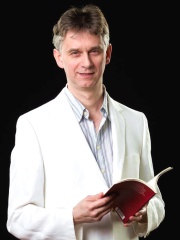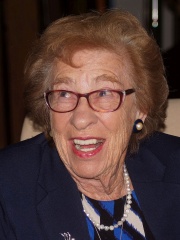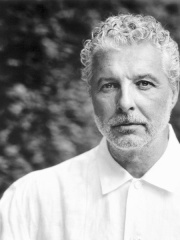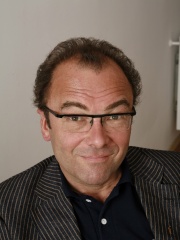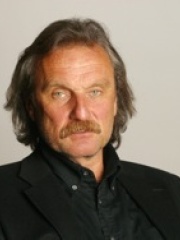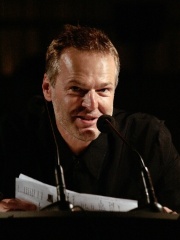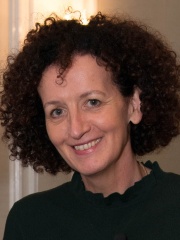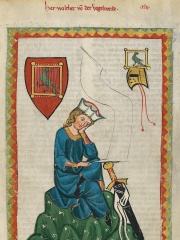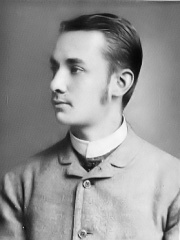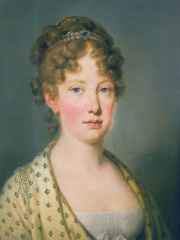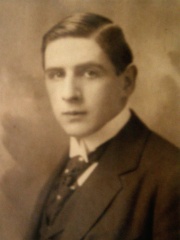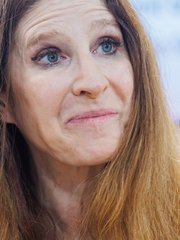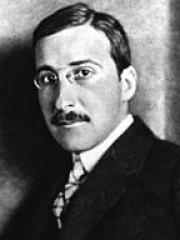
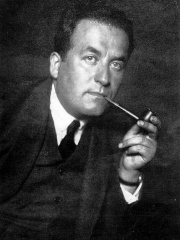
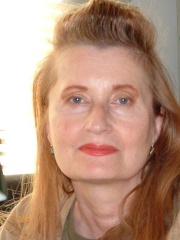
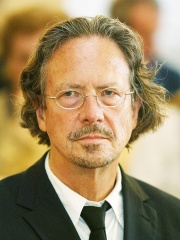
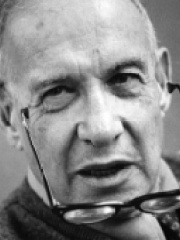
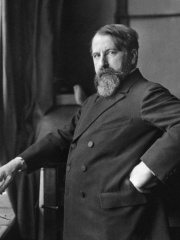
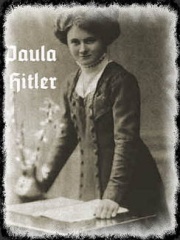
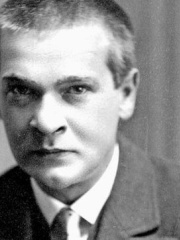
The Most Famous
WRITERS from Austria
Top 10
The following people are considered by Pantheon to be the top 10 most legendary Austrian Writers of all time. This list of famous Austrian Writers is sorted by HPI (Historical Popularity Index), a metric that aggregates information on a biography's online popularity. Visit the rankings page to view the entire list of Austrian Writers.

1. Stefan Zweig (1881 - 1942)
With an HPI of 83.35, Stefan Zweig is the most famous Austrian Writer. His biography has been translated into 83 different languages on wikipedia.
Stefan Zweig ( ZWYGHE, SWYGHE; German: [ˈʃtɛfan t͡svaɪ̯k] or Austrian German: [t͡svaɪ̯g]; 28 November 1881 – 22 February 1942) was an Austrian writer. At the height of his literary career in the 1920s and 1930s, he was one of the most widely translated and popular writers in the world. Born into a Jewish family, Zweig was raised in Vienna, Austria-Hungary. He wrote historical studies of famous literary figures, such as Honoré de Balzac, Charles Dickens, and Fyodor Dostoevsky in Drei Meister (1920; Three Masters), and decisive historical events in Decisive Moments in History (1927). He wrote biographies of Joseph Fouché (1929), Mary Stuart (1935) and Marie Antoinette (Marie Antoinette: The Portrait of an Average Woman, 1932), among others. Zweig's best-known fiction includes Letter from an Unknown Woman (1922), Amok (1922), Fear (1925), Confusion of Feelings (1927), Twenty-Four Hours in the Life of a Woman (1927), the psychological novel Ungeduld des Herzens (Beware of Pity, 1939), and The Royal Game (1941). In 1934, as a result of the Nazi Party's rise in Germany and the establishment of the Ständestaat regime in Austria, Zweig emigrated to England and then, in 1940, moved briefly to New York and then to Brazil, where he settled. In his final years, he would declare himself in love with the country, writing about it in the book Brazil, Land of the Future. Nonetheless, as the years passed Zweig became increasingly disillusioned and despairing at the future of Europe, and he and his wife Lotte were found dead of a barbiturate overdose in their house in Petrópolis on 23 February 1942; they had died the previous day. His work has been the basis for several film adaptations. Zweig's memoir, Die Welt von Gestern (The World of Yesterday, 1942), is noted for its description of life during the waning years of the Austro-Hungarian Empire under Franz Joseph I and has been called the most famous book on the Habsburg Empire.

2. Shmuel Yosef Agnon (1888 - 1970)
With an HPI of 76.44, Shmuel Yosef Agnon is the 2nd most famous Austrian Writer. His biography has been translated into 84 different languages.
Shmuel Yosef Agnon (Hebrew: שמואל יוסף עגנון; August 8, 1887 – February 17, 1970) was an Austro-Hungarian-born Israeli novelist, poet, and short-story writer. He was one of the central figures of modern Hebrew literature. In Hebrew, he is known by the pseudonym Shai Agnon (ש"י עגנון). In English, his works are published under the name S. Y. Agnon. Agnon was born in Eastern Galicia, then part of the Austro-Hungarian Empire, and later immigrated to Mandatory Palestine, and died in Jerusalem. His works deal with the conflict between the traditional Jewish life and language and the modern world. They also attempt to recapture the fading traditions of the European shtetl (village). In a wider context, he also contributed to broadening the characteristic conception of the narrator's role in literature. Agnon had a distinctive linguistic style, mixing modern and rabbinic Hebrew. In 1966, he shared the Nobel Prize in Literature with the poet Nelly Sachs.

3. Elfriede Jelinek (b. 1946)
With an HPI of 76.31, Elfriede Jelinek is the 3rd most famous Austrian Writer. Her biography has been translated into 104 different languages.
Elfriede Jelinek (German: [ɛlˈfʁiːdə ˈjɛlinɛk]; born 20 October 1946) is an Austrian playwright and novelist. She is one of the most decorated authors to write in German and was awarded the 2004 Nobel Prize in Literature for her "musical flow of voices and counter-voices in novels and plays that, with extraordinary linguistic zeal, reveal the absurdity of society's clichés and their subjugating power". She is considered to be among the most important living playwrights of the German language.

4. Peter Handke (b. 1942)
With an HPI of 76.29, Peter Handke is the 4th most famous Austrian Writer. His biography has been translated into 79 different languages.
Peter Handke (German: [ˈpeːtɐ ˈhantkə]; born 6 December 1942) is an Austrian novelist, playwright, translator, poet, film director, and screenwriter. He was awarded the 2019 Nobel Prize in Literature "for an influential work that with linguistic ingenuity has explored the periphery and the specificity of human experience." Handke is considered to be one of the most influential and original German-language writers in the second half of the 20th century. In the late 1960s, he earned his reputation as a member of the avant-garde with such plays as Offending the Audience (1966) in which actors analyze the nature of theatre and alternately insult the audience and praise its "performance", and Kaspar (1967). His novels, mostly ultra objective, deadpan accounts of characters in extreme states of mind, include The Goalie's Anxiety at the Penalty Kick (1970) and The Left-Handed Woman (1976). Prompted by his mother's suicide in 1971, he reflected her life in the novella A Sorrow Beyond Dreams (1972). A dominant theme of his works is the deadening effects and underlying irrationality of ordinary language, everyday reality, and rational order. Handke was a member of the Grazer Gruppe (an association of authors) and the Grazer Autorenversammlung, and co-founded the Verlag der Autoren publishing house in Frankfurt. He collaborated with director Wim Wenders, and wrote such screenplays as The Wrong Move and Wings of Desire. In 1973, he won the Georg Büchner Prize, the most important literary prize for German-language literature. In 1999, as a protest against the NATO bombing of Yugoslavia, Handke returned the prize money to the German Academy for Language and Literature. Handke has drawn significant controversy for his public support of Serbian nationalism in the wake of the Yugoslav Wars.

5. Robert Musil (1880 - 1942)
With an HPI of 75.65, Robert Musil is the 5th most famous Austrian Writer. His biography has been translated into 60 different languages.
Robert Musil (Austrian German: [ˈroːbɛrt ˈmuːzɪl]; 6 November 1880 – 15 April 1942) was an Austrian philosophical writer. His unfinished novel, The Man Without Qualities (German: Der Mann ohne Eigenschaften), is generally considered to be one of the most important and influential modernist novels.

6. Peter Drucker (1909 - 2005)
With an HPI of 74.82, Peter Drucker is the 6th most famous Austrian Writer. His biography has been translated into 48 different languages.
Peter Ferdinand Drucker (; German: [ˈdʁʊkɐ]; November 19, 1909 – November 11, 2005) was an Austrian American management consultant, educator, and author, whose writings contributed to the philosophical and practical foundations of modern management theory. He was also a leader in the development of management education, and contributed to the popularization of the concepts known as management by objectives and self-control, and he has been described as "the champion of management as a serious discipline". Drucker's books and articles, both scholarly and popular, explored how humans are organized across the business, government, and nonprofit sectors of society. He is one of the best-known and most widely influential thinkers and writers on the subject of management theory and practice. His writings have predicted many of the major developments of the late twentieth century, including privatization and decentralization; the rise of Japan to economic world power; the decisive importance of marketing; and the emergence of the information society with its necessity of lifelong learning. In 1959, Drucker coined the term "knowledge worker", and later in his life considered knowledge-worker productivity to be the next frontier of management.

7. Arthur Schnitzler (1862 - 1931)
With an HPI of 74.59, Arthur Schnitzler is the 7th most famous Austrian Writer. His biography has been translated into 55 different languages.
Arthur Schnitzler (15 May 1862 – 21 October 1931) was an Austrian author and dramatist. He is considered one of the most significant representatives of Viennese Modernism. Schnitzler’s works, which include psychological dramas and narratives, dissected turn-of-the-century Viennese bourgeois life, making him a sharp and stylistically conscious chronicler of Viennese society around 1900. Schnitzler's Jewish upbringing and the sexual content of his works made them controversial or banned in his time and beyond.

8. Paula Hitler (1896 - 1960)
With an HPI of 73.71, Paula Hitler is the 8th most famous Austrian Writer. Her biography has been translated into 36 different languages.
Paula Hitler, also known as Paula Wolff and Paula Hitler-Wolff (21 January 1896 – 1 June 1960), was the younger sister of Adolf Hitler and the last child of Alois Hitler and his third wife, Klara Pölzl.

9. Georg Trakl (1887 - 1914)
With an HPI of 72.40, Georg Trakl is the 9th most famous Austrian Writer. His biography has been translated into 49 different languages.
Georg Trakl (Austrian German: [ˈtraːkl̩]; 3 February 1887 – 3 November 1914) was an Austrian poet and the brother of the pianist Grete Trakl. He is considered one of the most important Austrian Expressionists. He is perhaps best known for his poem "Grodek", which he wrote shortly before he died of a cocaine overdose at the age of 27.
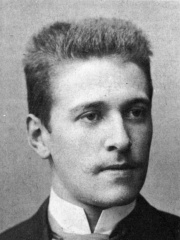
10. Hugo von Hofmannsthal (1874 - 1929)
With an HPI of 72.23, Hugo von Hofmannsthal is the 10th most famous Austrian Writer. His biography has been translated into 48 different languages.
Hugo Laurenz August Hofmann von Hofmannsthal (German: [ˈhuːɡo fɔn ˈhoːfmanstaːl] ; 1 February 1874 – 15 July 1929) was an Austrian novelist, librettist, poet, dramatist, narrator, and essayist.
People
Pantheon has 82 people classified as Austrian writers born between 1060 and 1969. Of these 82, 14 (17.07%) of them are still alive today. The most famous living Austrian writers include Elfriede Jelinek, Peter Handke, and Klaus Ebner. The most famous deceased Austrian writers include Stefan Zweig, Shmuel Yosef Agnon, and Robert Musil. As of April 2024, 1 new Austrian writers have been added to Pantheon including Ursula Poznanski.
Living Austrian Writers
Go to all RankingsElfriede Jelinek
1946 - Present
HPI: 76.31
Peter Handke
1942 - Present
HPI: 76.29
Klaus Ebner
1964 - Present
HPI: 71.90
Eva Schloss
1929 - Present
HPI: 62.58
André Heller
1947 - Present
HPI: 54.78
Robert Menasse
1954 - Present
HPI: 54.32
Thomas Brezina
1963 - Present
HPI: 53.00
Christoph Ransmayr
1954 - Present
HPI: 52.53
Wolf Haas
1960 - Present
HPI: 48.94
Maja Haderlap
1961 - Present
HPI: 48.92
Robert Seethaler
1966 - Present
HPI: 48.35
Arabella Kiesbauer
1969 - Present
HPI: 46.53
Deceased Austrian Writers
Go to all RankingsStefan Zweig
1881 - 1942
HPI: 83.35
Shmuel Yosef Agnon
1888 - 1970
HPI: 76.44
Robert Musil
1880 - 1942
HPI: 75.65
Peter Drucker
1909 - 2005
HPI: 74.82
Arthur Schnitzler
1862 - 1931
HPI: 74.59
Paula Hitler
1896 - 1960
HPI: 73.71
Georg Trakl
1887 - 1914
HPI: 72.40
Hugo von Hofmannsthal
1874 - 1929
HPI: 72.23
Walther von der Vogelweide
1170 - 1230
HPI: 71.85
Gustav Meyrink
1868 - 1932
HPI: 71.68
Maria Leopoldina of Austria
1797 - 1826
HPI: 71.47
Hermann Broch
1886 - 1951
HPI: 71.16
Newly Added Austrian Writers (2025)
Go to all RankingsOverlapping Lives
Which Writers were alive at the same time? This visualization shows the lifespans of the 25 most globally memorable Writers since 1700.

